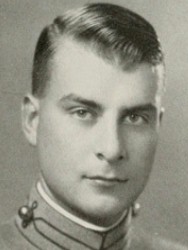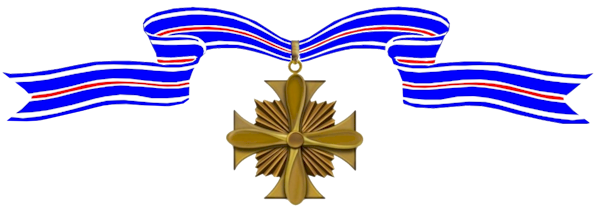Richard Fellows attended the University of Wisconsin for a year and a half before entering the U.S. Military Academy at West Point, where he graduated with the Class of 1937. After service in World War II, he earned a Master’s Degree at Stanford University in 1948. He retired as a U.S. Air Force Brigadier General on September 1, 1966.

–
Born:
,
Home:
,
Buried:
,
Cemetery:
Awards Received
-

Legion of Merit
-

Silver Star
-
Legion of Merit

United States Military Academy Register of Graduates(Citation Needed) – SYNOPSIS: Brigadier General Richard William Fellows (AFSN: FR-1334/ASN: 0-20655), United States Air Force, was awarded the Legion of Merit for exceptionally meritorious conduct in the performance of outstanding services to the Government of the United States from 1964 to 1966. The singularly distinctive accomplishments of General Fellows culminate a long and distinguished career in the service of his country and his dedicated contributions reflect the highest credit upon himself and the United States Air Force.
-
Silver Star
Service:
United States Army Air ForcesRank:
Lieutenant Colonel (Air Corps)Regiment:
376th Bombardment Group (H)Division:
15th Air ForceAction Date:
April 4, 1944
Headquarters, 15th Air Force, General Orders No 262 (April 22, 1944)The President of the United States of America, authorized by Act of Congress July 9, 1918, takes pleasure in presenting the Silver Star to Lieutenant Colonel (Air Corps) Richard William Fellows (AFSN: FR-1334/ASN: 0-20655), United States Army Air Forces, for gallantry in action while serving as Pilot of a B-24 Liberator Bomber and as Commanding Officer of the 376th Bombardment Group, FIFTEENTH Air Force, in action on 4 April 1944. On that date, Lieutenant Colonel Fellows was Commander of a formation of B-24 type aircraft leading a wing on a bombing mission against a vitally important enemy rail center in Rumania. Despite heavy anti-aircraft fire, he maneuvered his formation with great skill in the target area making it possible for the bombardiers to obtain a very heavy and accurate coverage of bomb bursts on the briefed target causing heavy damage and certain destruction of main tracks, a goods station, locomotive houses and freight yards. Just after the turn off the target his formation was attacked aggressively by fifty enemy fighters firing cannons, rockets and dropping aerial bombs. Lieutenant Colonel Fellows with grim determination to save his group from suffering heavy losses, using his previous combat experiences to the utmost, skillfully directed the grouping of his airplanes into a tighter and more efficient fighting formation with the result that ten enemy fighters were definitely destroyed, seven probable destroyed and four damaged for the loss of only one of our aircraft during an intense air battle of forty minute duration. By his outstanding gallantry, splendid leadership, coolness under severe battle conditions, Lieutenant Colonel Fellows has reflected great credit upon himself and the Armed Forces of the United States of America.


